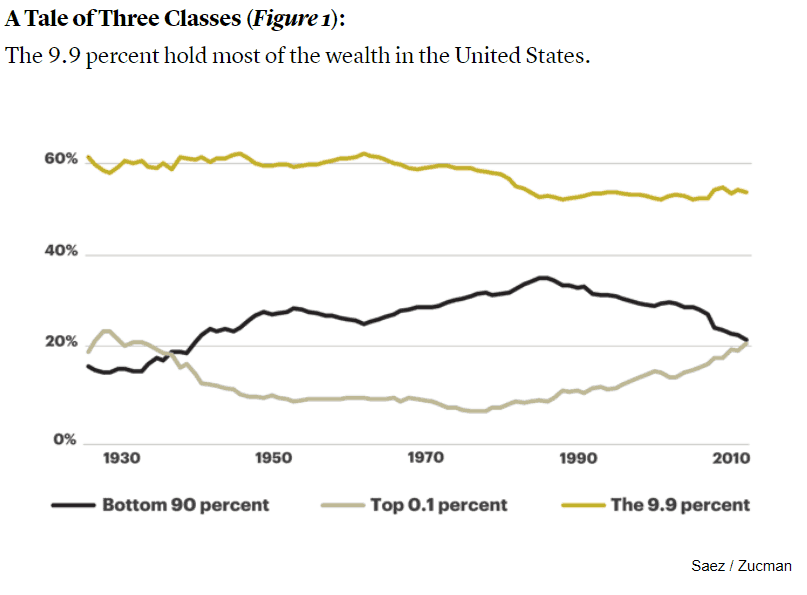Food for Thought
The Atlantic published two thought-provoking pieces this week. “The 9.9 Percent is the New American Aristocracy” takes a critical look at the rise of “the meritocratic class,” or the group of (largely) MBAs, JDs, and MDs who hold more wealth than the top 0.1 percent and bottom 90 percent combined.

It is a long read and you may not agree with everything the author argues, but he does a good job weaving personal narrative and data to examine inequality in America.
The other piece looks at the rise of black homeschooling in the U.S. North Carolina has one of the largest populations of homeschoolers (see our Weekly Insight on homeschooling), yet in the U.S. the homeschooling population is largely white. This article looks at reasons why more black parents are choosing homeschooling as well as the tensions it is creating in the black community.
The Next Evolution
The rise of artificial intelligence and the ways it will change our lives is a much-debated topic right now. An article in The New Food Economy looks at a start-up hoping to revolutionize the food industry by using A.I. to personalize food.
The idea is to use A.I. to customize food based on our individual flavor preferences. The author summed it up as:
“Ultimately, what Analytic Flavor Systems is selling is not a food or beverage: It is a predictive image of desire.”
For Your Consideration
The Urban Institute published a report this week examining the impact of the proposed changes to SNAP in legislation passed by the House Committee on Agriculture. The bill would require “able-bodied” adults to work or participate in employment and training activities for at least 20 hours per week (with some exceptions) to receive SNAP benefits.
Here are a few key findings. Note that these are upper-bound estimates:
- If the bill were in effect in 2018, about 20 percent of those receiving SNAP benefits (7.9 million people) would be potentially subject to work requirements. In NC, that number is about 188,888 people.
- Of those potentially subject to work requirements, 66 percent (5.2 million) do not currently work enough to meet the requirements. In NC, that number is 60 percent (~113,000 people).
- Of households with children receiving SNAP benefits potentially subject to work requirements, 58 percent (1.6 million) have at least one adult who does not currently work enough to meet the requirements, meaning the family would lose SNAP benefits
Need to Know
EducationNC and Reach NC Voices are conducting a survey on student chronic absenteeism in North Carolina. They want to know why students are missing school, and how this impacts their educational outcomes. Take the survey here.
On Saturday, I’m heading to the Aspen Institute Executive Seminar for the week, so our CEO Mebane Rash will be taking over Friday@Five next week.
What we're reading
Shad in the Classroom Boosts Recovery Effort
This spring, students across the state are raising and releasing American shad as part of the Shad in the Classroom program.... Read the rest-
Is the Chan Zuckerberg Initiative the Future of Philanthropy?
-
How global university rankings are changing higher education
-
Don’t Bet On It
-
Mapping Puerto Rico's Hurricane Migration With Mobile Phone Data
-
We Know Plastic Is Harming Marine Life. What About Us?
-
Drug Prices Drive Many Americans to Black Market for Medicines


